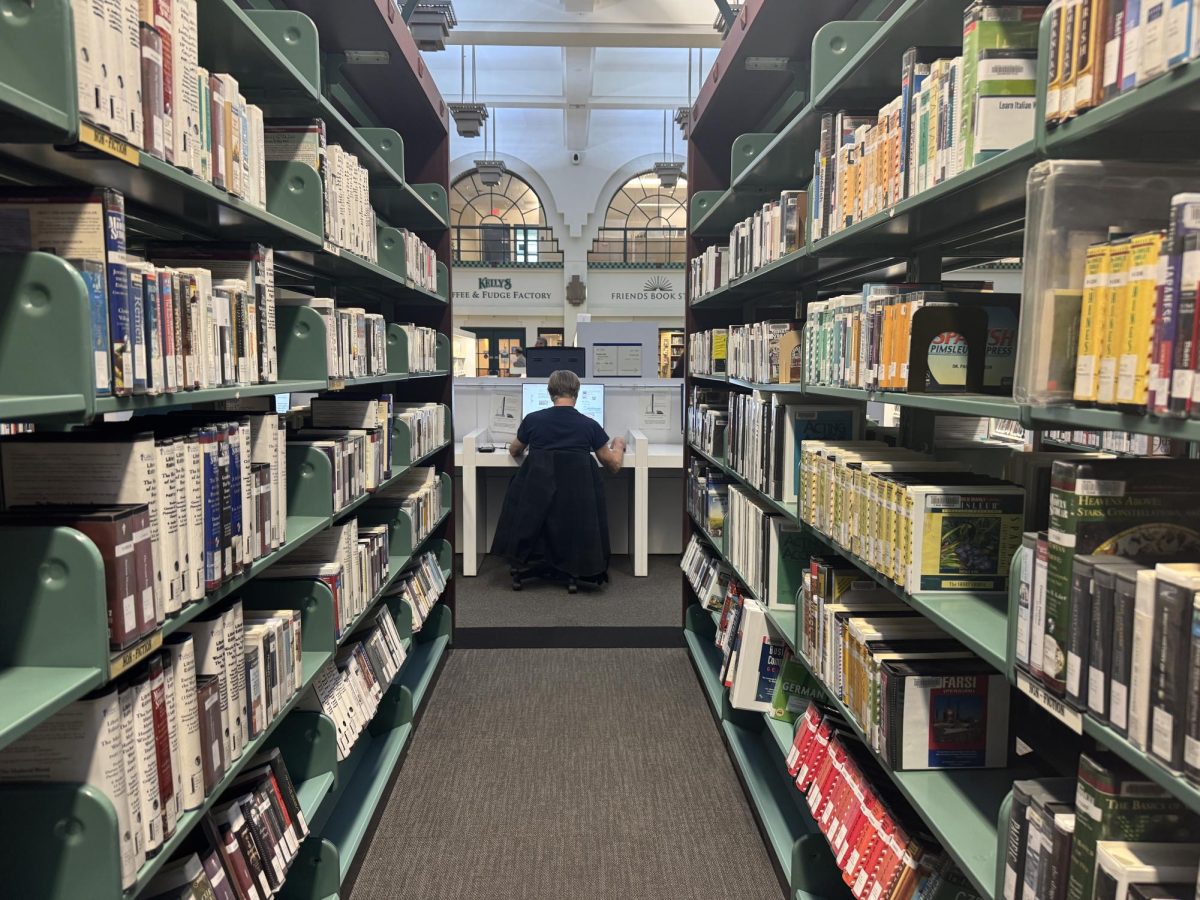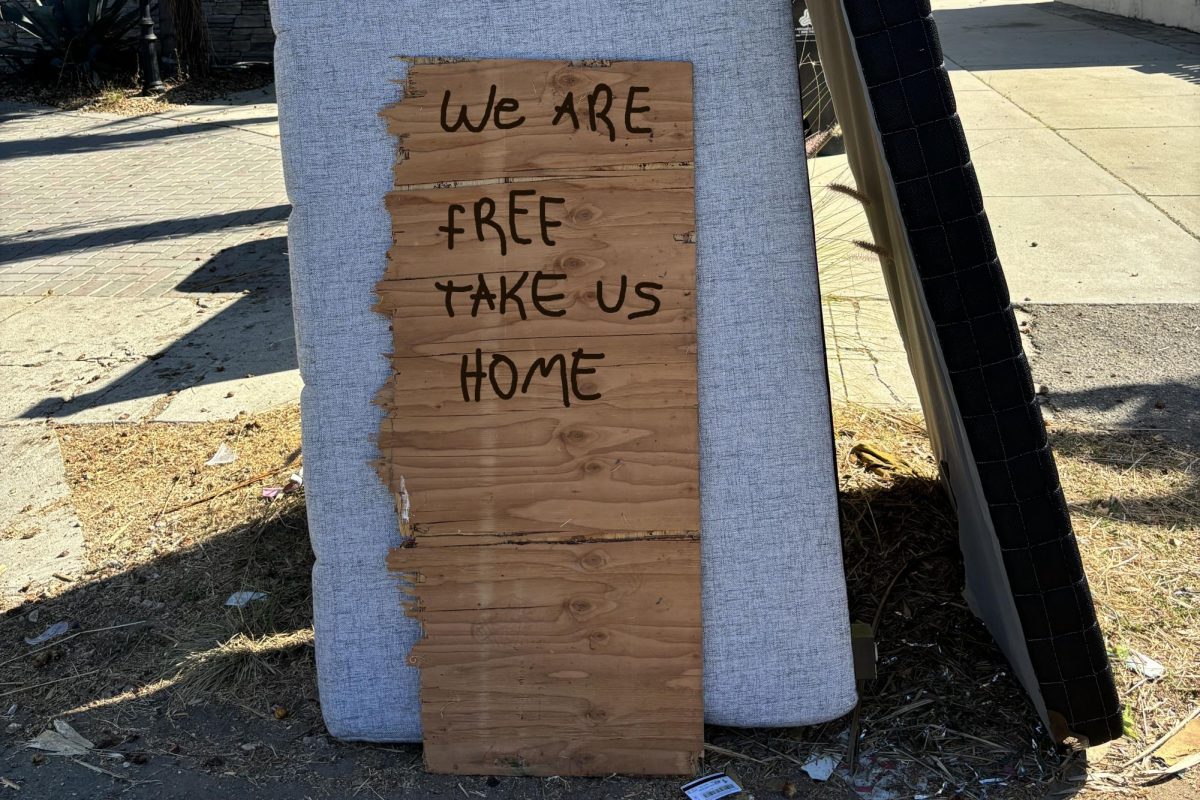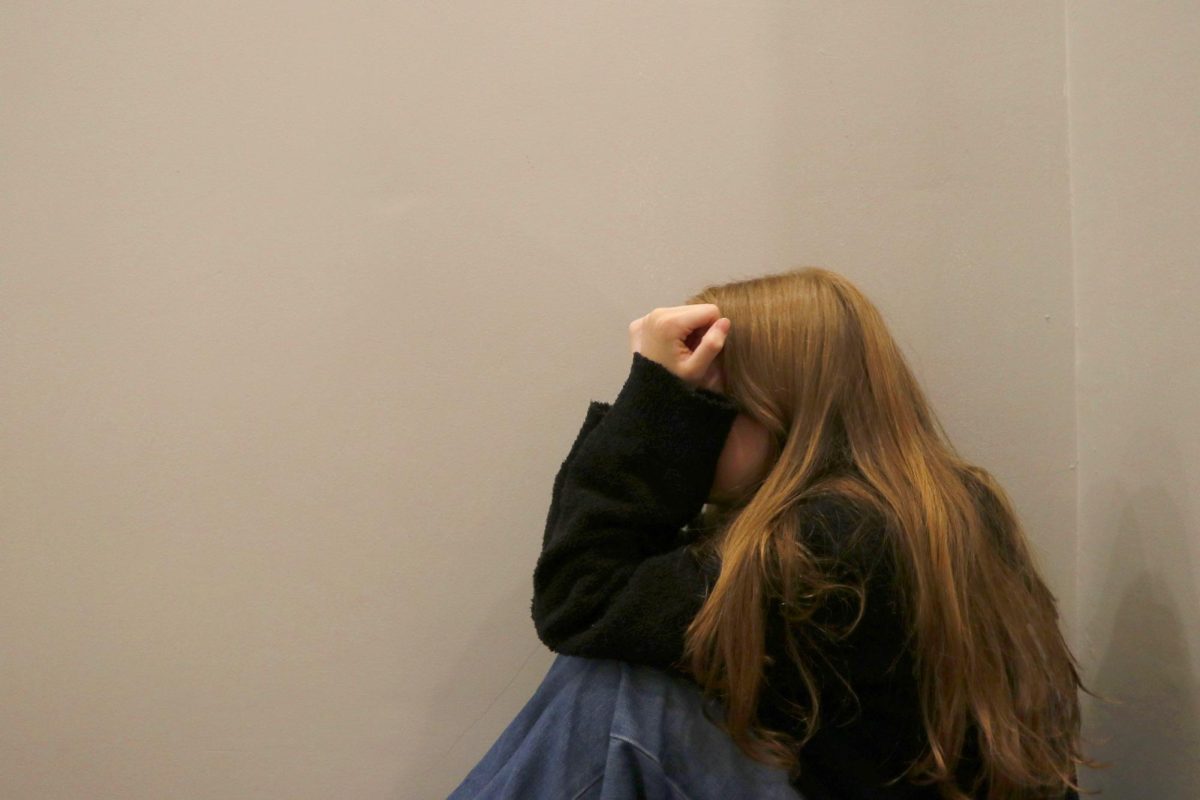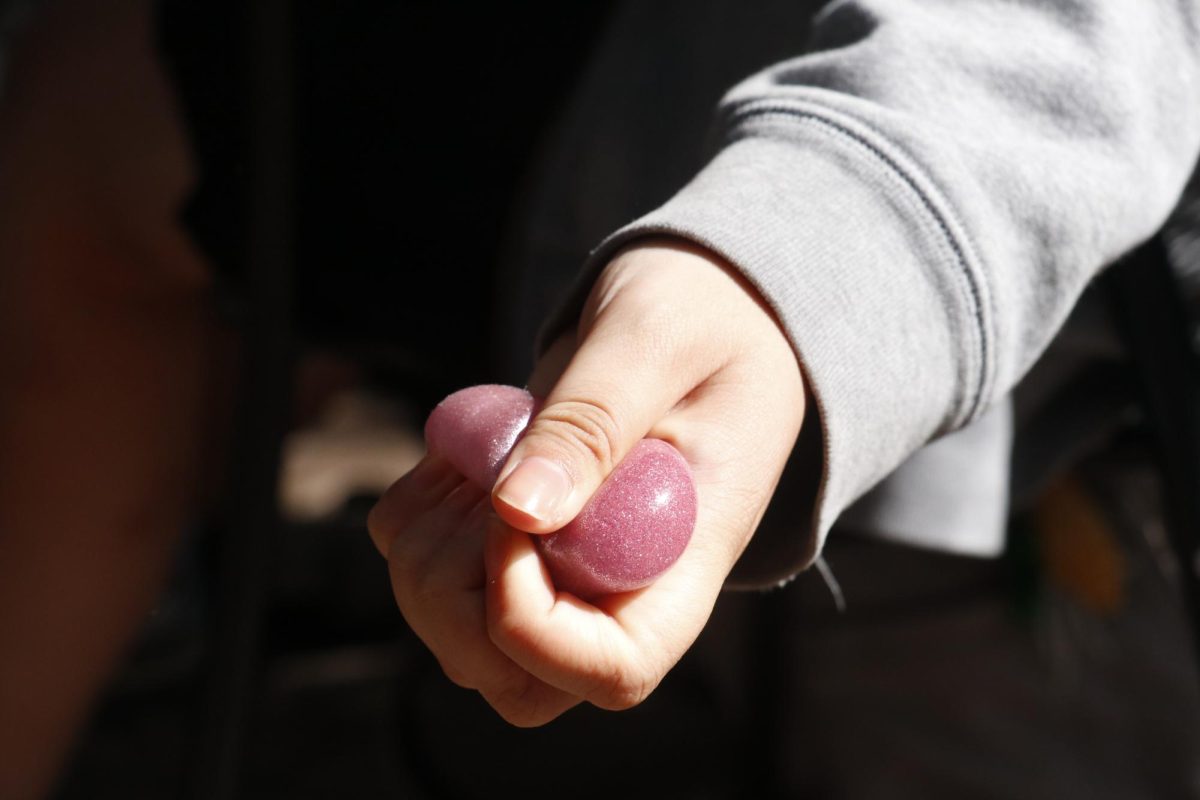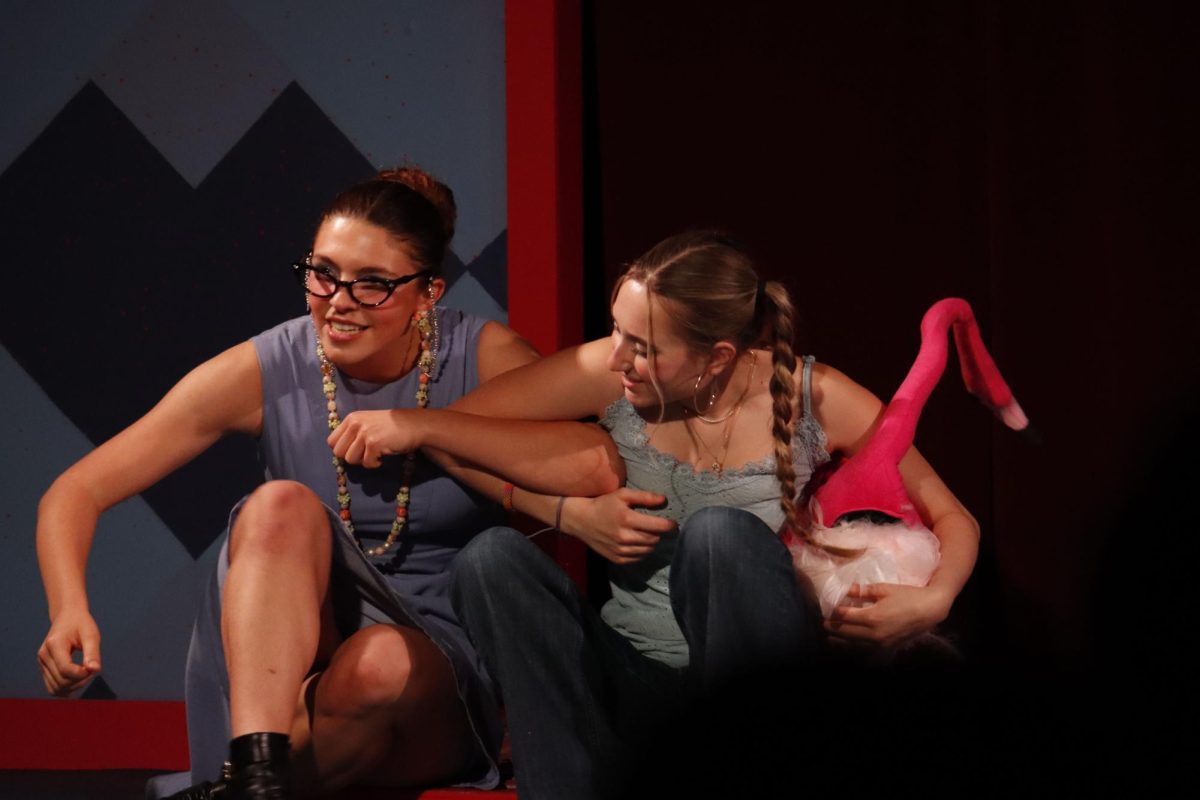Breast cancer survivors share their stories in honor of Breast Cancer Awareness Month


During the month of October, it is likely you witnessed countless pink ribbons flooding the streets, along with pink lettering adorning the billboards on the sidewalk. This pink imagery was all in place to honor Breast Cancer Awareness Month, which takes place every October. Breast Cancer Awareness Month is a time dedicated to educating communities about breast cancer and early detection, as well as acknowledging the impact it has on many lives. Charities, organizations and hospitals hold events across the country to spread awareness of treatments and therapies and encourage action. For example, City of Hope held a “Walk For Hope” at multiple locations to benefit cancer research.
According to Susan G. Komen, a large charity organization, one out of every eight women will be diagnosed with breast cancer in their lifetime, which is one person every two minutes. It is not just women who are impacted by breast cancer, but “the lifetime risk of getting breast cancer is about one in 1,000 for men.” In honor of breast cancer patients and their loved ones, three breast cancer survivors shared their stories, experiences and personal ways of recognizing the month.

The American Cancer Society recommends women should begin breast cancer screening with annual mammograms at age 45, but some may need to start earlier depending on family genetics.
This is exactly what breast cancer survivor Tina Fox did. Fox said she routinely got these mammograms and would always disregard the letter the doctor sent her with results, as everything was always the same. However, after one of her yearly mammograms, Fox received a notice to come in for a second mammogram and a biopsy. Fox was diagnosed with stage 2B breast cancer in 2021 at age 51.
Fox was a patient at the Ronald Reagan UCLA Medical Center in Santa Monica and underwent a mastectomy, surgery to remove a breast, and six weeks of chemotherapy, a cancer treatment that uses drugs to stop the growth of cancerous cells. Fox described the most difficult part of the treatment process and the toll it took on her.
“I’ve been in the hospital for multiple [surgeries] in my life. I thought those were hard, but for some reason, the cancer chemo treatment hit me really hard,” Fox said. “I wouldn’t believe it even now saying it, but [I had] no appetite. I couldn’t eat for two days. I didn’t want to drink water. It gave me brain fog too … [I couldn’t] think straight, and I felt very fragile, like if somebody would have just [pointed] a finger at me, I would probably just fall and break.”
Fox said she appreciated her husband during the difficult days, where she could not drive or even walk to her car. She said he was always there to help her.
“I [appreciated] my husband a lot for all the support, but he couldn’t help me emotionally because this is the first time we went through this,” Fox said. “He [didn’t] know. He’s not a professional psychiatrist.”
For additional emotional support, she consulted a social worker via Zoom, who guided her through her feelings.
“It really helps to admit that you need help and ask for it,” Fox said. “Don’t feel like it’s a weakness if you need help.”
Fox said she believes Breast Cancer Awareness Month is important to spread awareness about early detection and appreciate the resilience of breast cancer survivors.
“Trust me, you don’t know it until it happened to you or your loved one,” Fox said. “It could be your mom or it could be your sister — the awareness is so important.”
When reflecting on how she personally observes the month, Fox said she focuses on sharing her story with friends and acquaintances.
“I’m not ashamed to tell them, ‘Hey, I’m a survivor. This is what I went through,'” Fox said. “So I do it on a personal basis, as opposed to doing on an event basis.”

At 46-years-old, 10th grade Dean of Culture, Community and Belonging and theater teacher Tracy Poverstein had an upcoming appointment for her annual mammogram. She was debating putting it off because she had a nearing theater show, but said that a little voice in her head told her to go.
So, like Fox, Poverstein went to UCLA to get screened. On her 47th birthday, she received her test results, and her doctors called her back for an X-ray.
“I could tell from the woman behind the X-ray machine that something was going on, and I just kind of broke down,” Poverstein said. “She said, ‘I’m not supposed to tell you anything. I’m supposed to wait for the doctor,’ but she was very kind, and she told me that, yes, it was cancer.”
Poverstein then went to her primary physician at a different office and said she had a negative experience. Her primary physician passed her off to a different physician — an associate who she had never met before.
“He told me that I would need chemo, I would need radiation, I would need a double mastectomy — he really scared me, and not all of those things turned out to be true,” Poverstein said. “I tell that story because I think it’s really important, especially for women, to feel confident in their doctors. This was the first time in my life that it was really important, and I really had to advocate for myself.”
For her treatment, Poverstein said she underwent a double mastectomy to lessen the chances of the cancerous cells spreading throughout her body again.
“No one had ever spoken about reconstruction surgery — mastectomies. I didn’t know anything about it, so this was all very eye-opening for me,” Poverstein said. “I was really lucky in that they felt [the cancer] hadn’t spread to my lymph nodes, and that, because of the type of cancer, it was that they felt like they had got it all, and they did not feel like there would be any benefit from radiation or chemotherapy.”
Throughout this entire experience, Poverstein said her daughter, Ava McQuade (’26), former orchestra director Susan Smith, her husband and a past Archer teacher who had breast cancer all helped her heal emotionally with their continuous support.
Poverstein reflected on why she believes breast cancer education is important and what she learned from her personal experience with doctors.
“It’s really important to advocate for yourself and find doctors that will take the time, that will not rush you, that will answer questions [and] that have the bedside manner that works for you,” Poverstein said. “[It is important] to advocate for yourself, to not just go with what they say and to be able to say no… I really didn’t know anything about this process, and [that] made it so much more scary.”
In 2010, Irene Morris’s doctors discovered a lump in her left breast during her yearly physical checkup at age 64. Morris said this was a shock to her, as her family has no history of the disease. The doctors recommended Morris go to St. Johns Hospital for specialists in the field, which is where Morris said her journey with breast cancer began.
Looking back at her cancer treatment journey, Morris said that the most difficult part was the chemotherapy treatment. The treatment required Morris to go to St. Johns Hospital every three or four weeks.
“They just keep sticking the needle in you, because you had to have the treatment — the chemo. And the worst part was that it really took it out of you. You had no energy or anything. If you were bloated, you were aching. I remember crying to my doctor and saying, ‘What can I take? I feel as though my muscles are just aching so bad.’ And she said, ‘It’s not your muscles, it’s your bones.’ I always remember [her] telling me that, and I was almost crying in agony,” Morris said. “When you did start to start feeling a little bit better, time for another treatment, so you’re back to square one again.”
Morris has lived in the US for 50 years and is originally from England. She used to work for Delta Airlines and said she noticed that large companies, like Delta Airlines, largely contribute to breast cancer awareness.
“It’s very, extremely important. Delta used to be a big, big contributor with that. They did a big thing for the flight attendants — used to wear the pink dresses and everything,” Morris said. “In fact, they used to always have an airplane every October and still do. I went a couple of times, and a lot of the survivors would get, you know, an invitation to [fly] you to wherever … for a luncheon and [more].”
Morris said purchasing organic foods should be more prevalent because many processed foods have chemicals that could lead to an increased risk of cancer.
“There [are] so many different types of cancers,” Morris said. “I think people have to be aware of eating a lot healthier nowadays, because when I was growing up, I mean, I’m going to be 76 this year, when I grow up, [I] didn’t [hear] the word cancer, very, very seldom. I think a lot has to do with people’s diet and the food. … When I was growing up, we didn’t have big supermarkets, you [would] just walk down the street and there’d be the local baker and the butcher and the green grocer. They were just small, little … shops, but everything was so fresh and homegrown. So all these preservatives that they put in food, and sprays that they spray, since I’ve had cancer and since organic became very popular. There are certain things [I think] you should be buying organic, because I think that contributes to a lot of it — I really do.”



